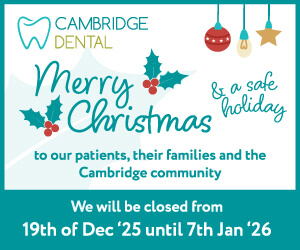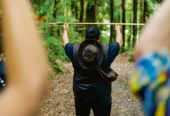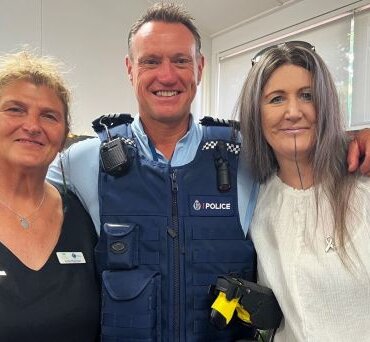
Anne Morrison, left, with Waikato police sergeant Greg Foster and ECLIPSE Family Violence Services founder Debbs Murray.
At least one woman a day in Cambridge is involved in a family harm incident that is reported to police and many more incidents go unreported.
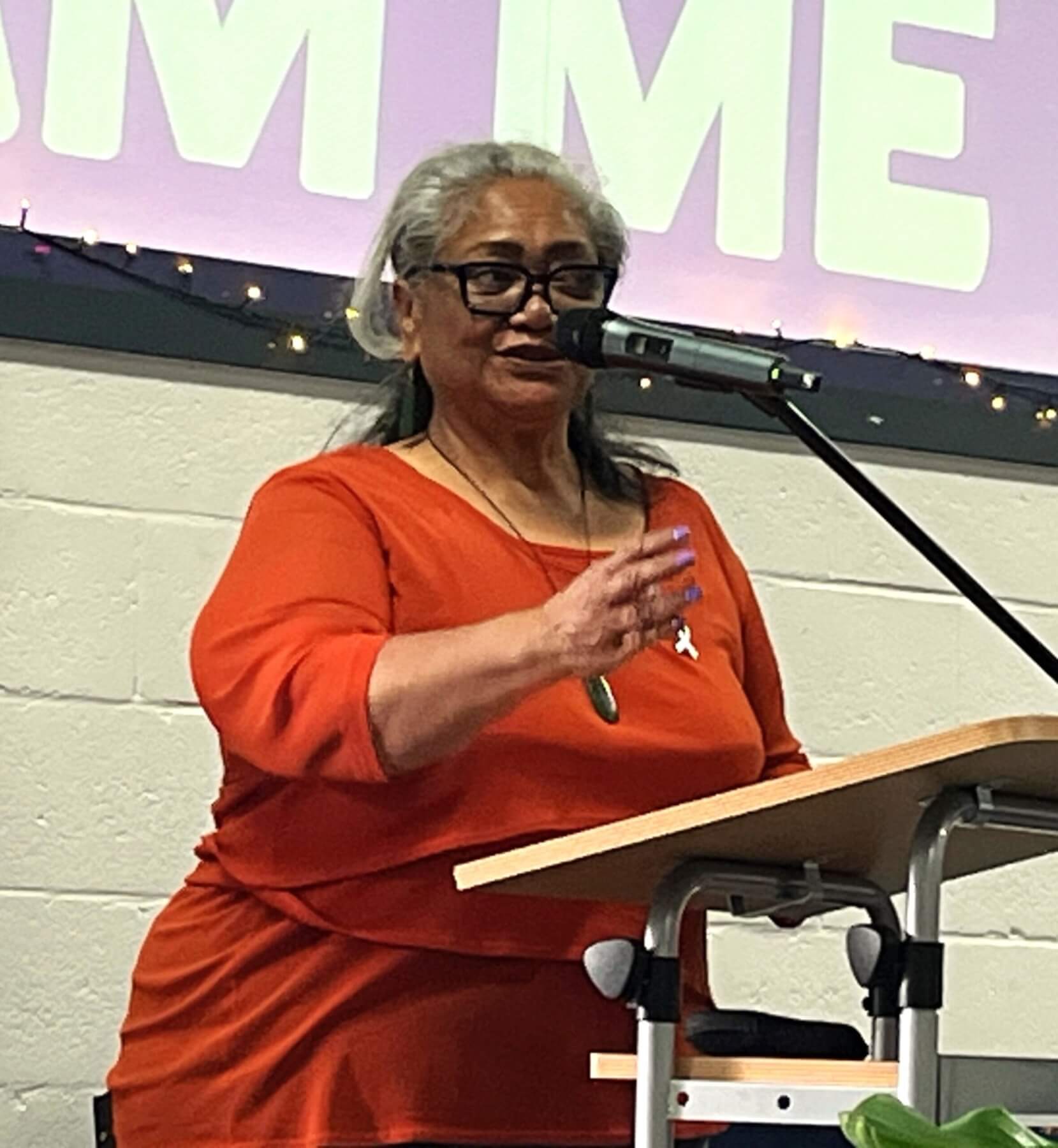
Cambridge Community House trustee Te Hiiri Taute emceed launch proceedings. Photo: Viv Posselt
It is on the back of escalating family violence that a pilot programme called “I Am Me’ was launched last week.
Developed by women who have experience of family violence, ‘I Am Me’ aims to create an environment for abused women to reclaim their self-worth and empowerment.
Programme founder and Violence Free Waipā co-ordinator Anne Morrison said police statistics from 2022-23 show family harm reports have almost doubled in the past decade from 102,888 in 2013 to 191,640 in 2023.
The Police Integrated Safety Response (IRS) database shows there were 386 reported family harm incidents in Cambridge during 2023.
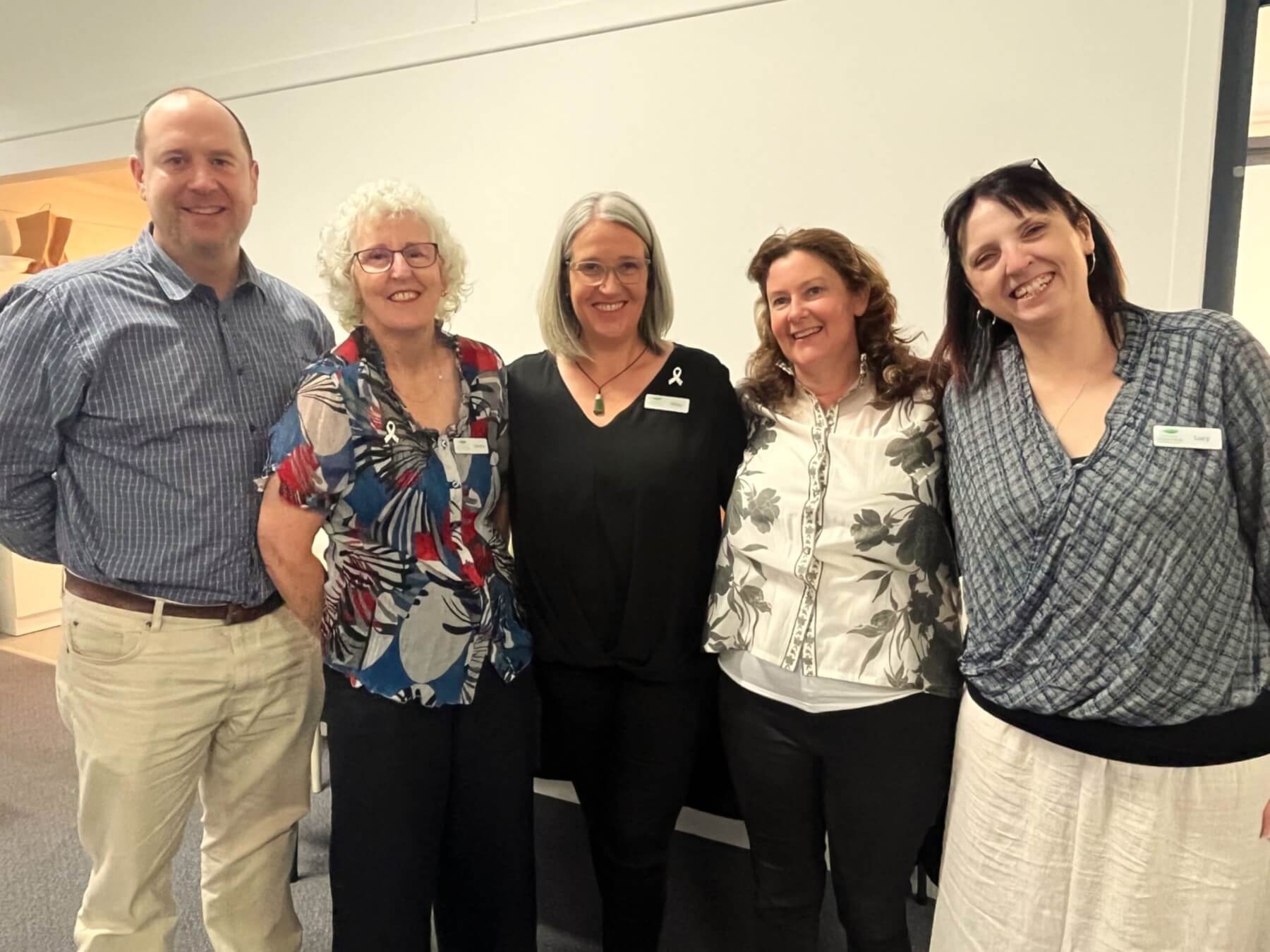
The team from Cambridge Community House (CCH) were at the launch They are, from left, Francis Radloff, Sandra Muirhead, Nicky Robson, Gina Lowe and Lucy Sheehan. Photo: Viv Posselt
“That’s more than one a day,” said Morrison. “It’s estimated that there is at least this number again of unreported cases. So, it would be fair to say that Cambridge has a challenge on its hands.”
The new structured pilot runs for eight weeks and the first group starts in February. Participants will be selected by December 20; each woman will have accessed local social services within the past 18 months.
After eight weeks, participants move to the unstructured ‘transitional’ phase which will include ongoing support-group gatherings. The pilot will end with a comprehensive evaluation that will help chart the way ahead for future programmes. An evaluation of the pilot is expected by late May.
The structured phase will address topics including protection and police safety orders, parenting orders, legal aid, navigating the Family Court system, counselling, budgeting, mental health and wellbeing, spiritual and cultural support, and personal group planning.
The launch took place at the Cambridge Salvation Army premises because it is there, on neutral ground, that sessions will be held. It was attended by New Zealand’s Minister for Children and the Prevention of Family Violence Karen Chhour, Taupō MP Louise Upston, Eclipse Family Violence Services founder Debbs Murray, police and Cambridge Community House staffers.
Speakers emphasised the role the community has in helping break the cycle of violence.
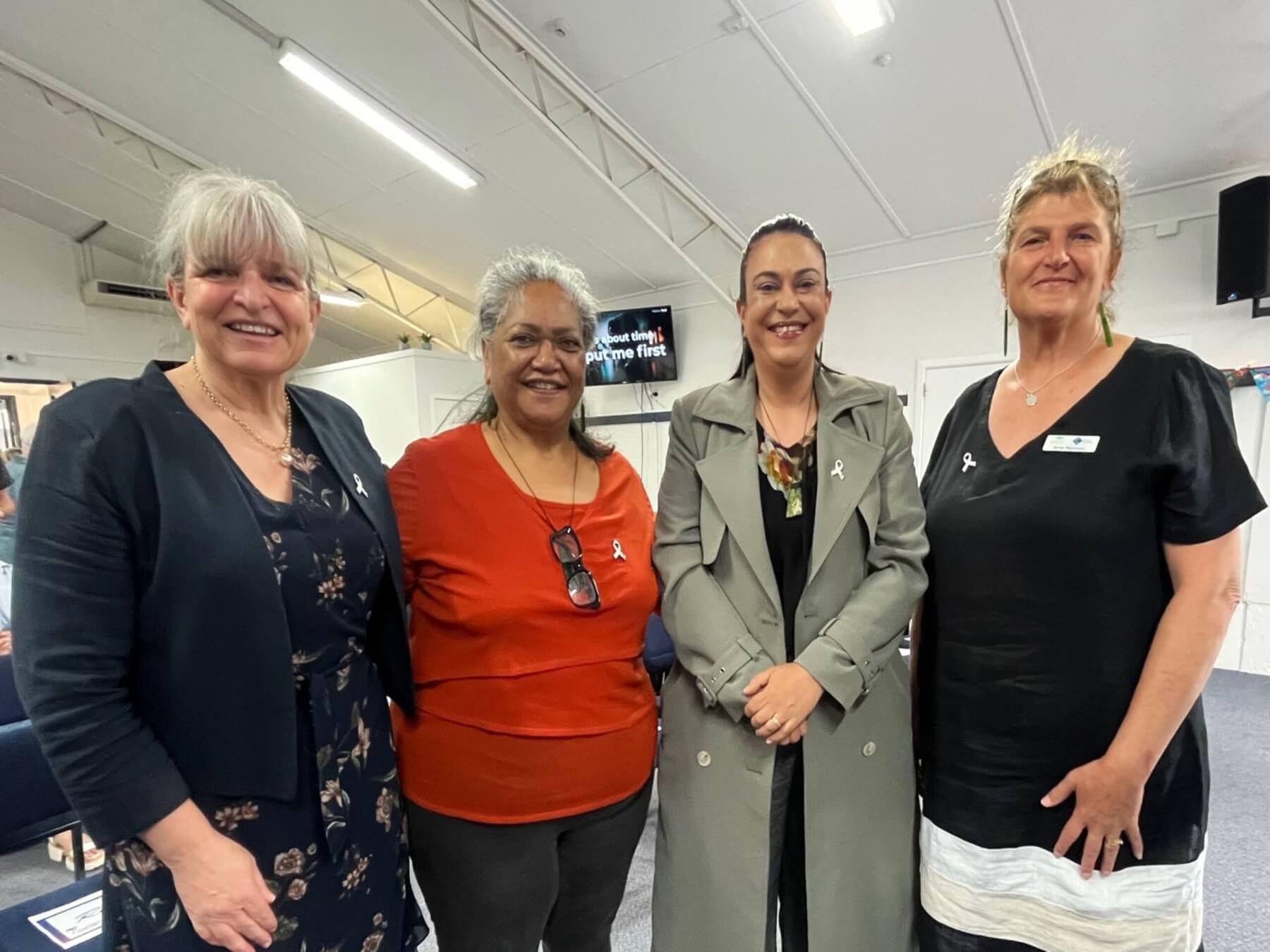
Cambridge Community House (CCH) manager Gabby Byrne, left, with CCH trustee and emcee Te Hiiri Taute, Minister for Children/ Prevention of Family and Sexual Violence Karen Chhour, and programme founder Anne Morrison. Photo: Viv Posselt
Karen Chhour said it was difficult to get into homes where generational violence existed, where people had no idea of what healthy relationships looked like, and spoke to no-one out of fear and shame. The problem did not discriminate and a one-size-fits-all solution was not the answer.
“Nearly 100,000 adults in New Zealand experience family violence each year and that doesn’t tell us how many incidences each day they all experience,” she said. The creativity of organisations like you means we can learn how to be more effective.”
Louise Upston said many in Cambridge did not believe the town had a domestic violence problem, but the facts spoke for themselves. She urged people to be more aware of how they speak to others.
“I would ask people to stop using some of the language we have seen directed towards others… towards those in offices, government agencies and the like. We should call that stuff out for what it is because what we don’t deal with, we tolerate.”
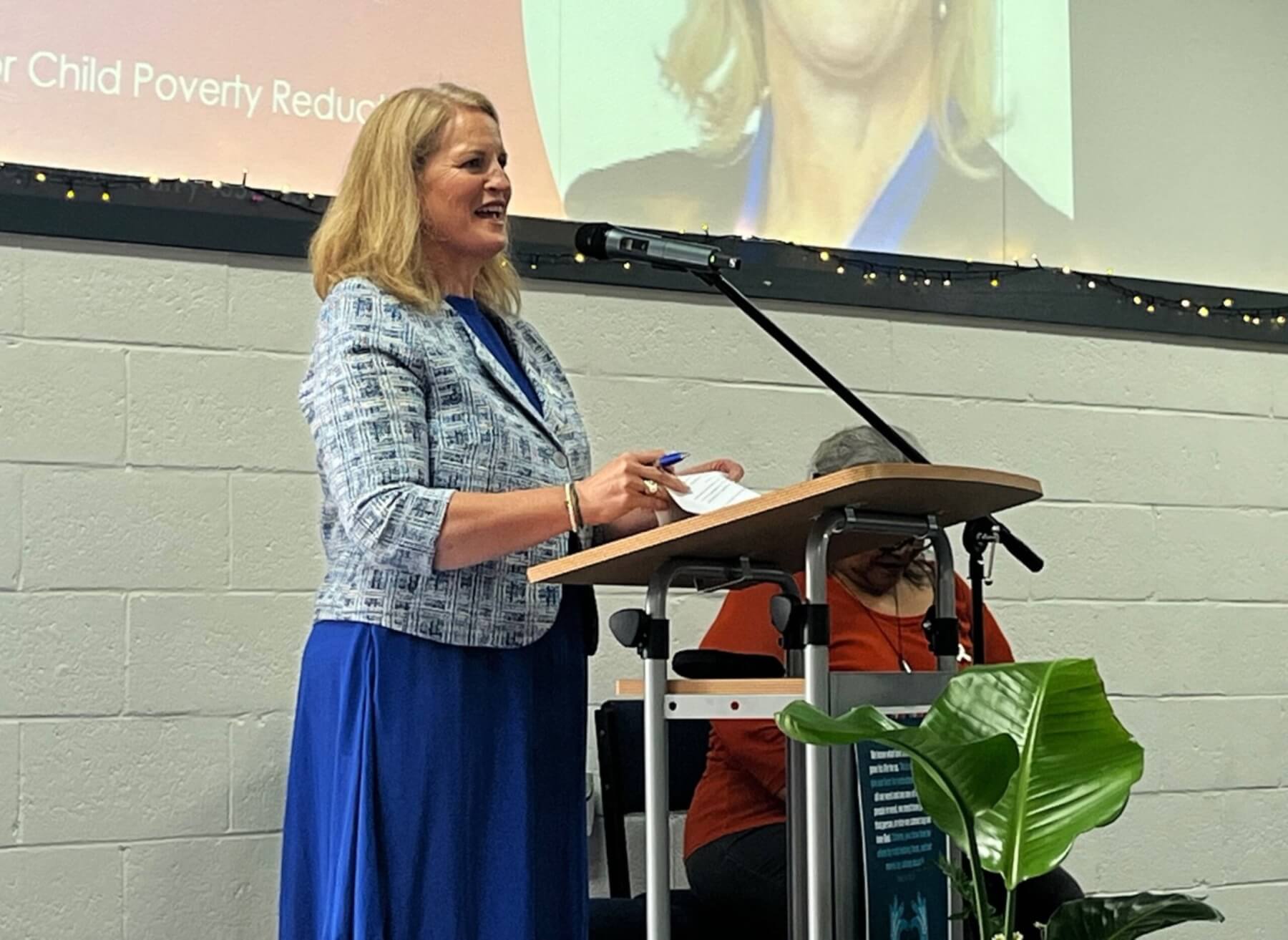
Local MP Louise Upston speaking to the crowd. Photo: Viv Posselt
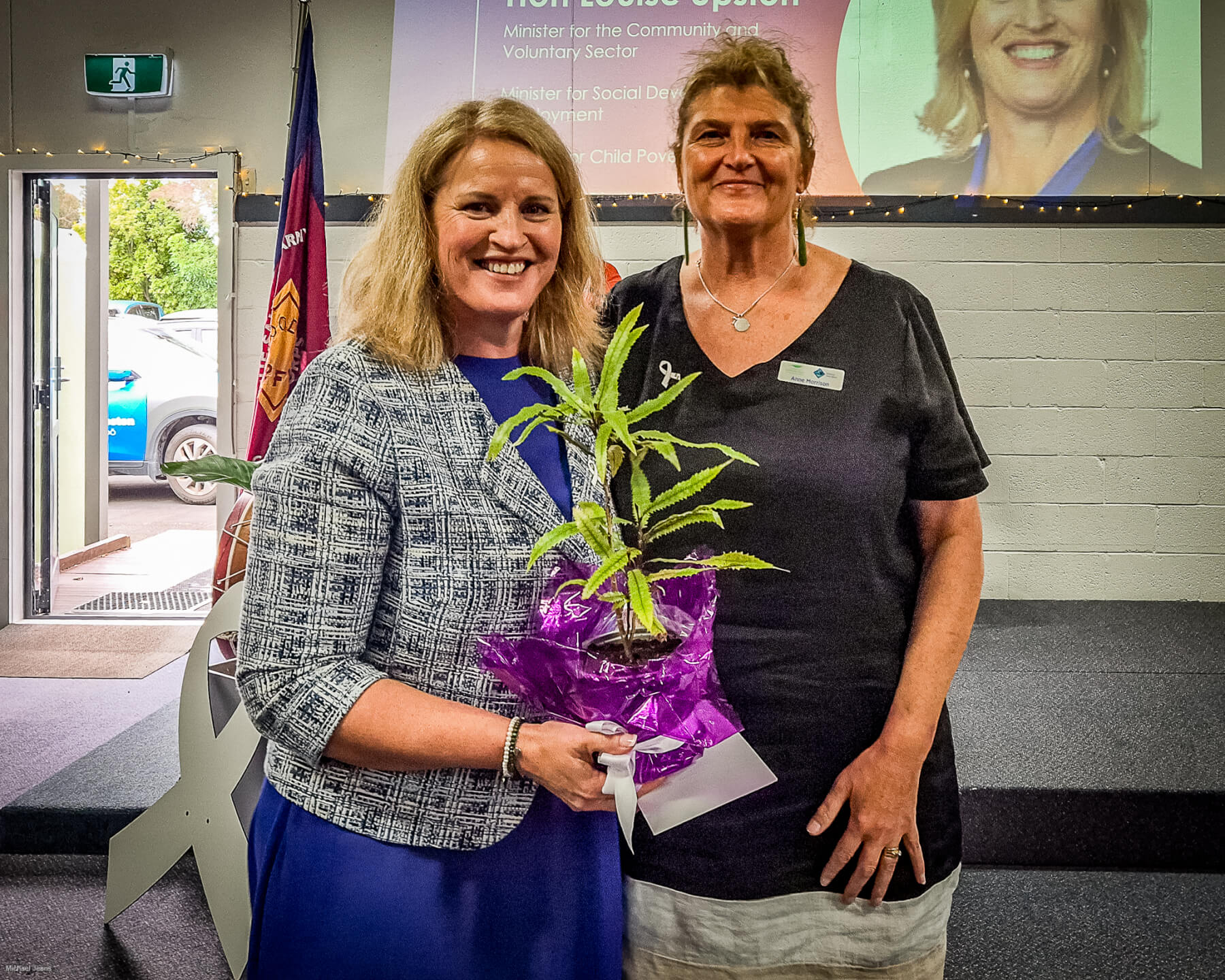
Local MP Louise Upston, left, with programme founder Anne Morrison after the launch. Photo: Michael Jeans
Debbs Murray, founder of the national Eclipse Family Violence Services, had a role in developing the ‘I Am Me’ programme. She spoke to her own experience and described the programme as one that will change lives through survivor-led healing.
She encouraged the community to get involved where it could.
“This is our issue in our community, and it would be appropriate for our community to support our women. We would welcome all offers of help,” she said.
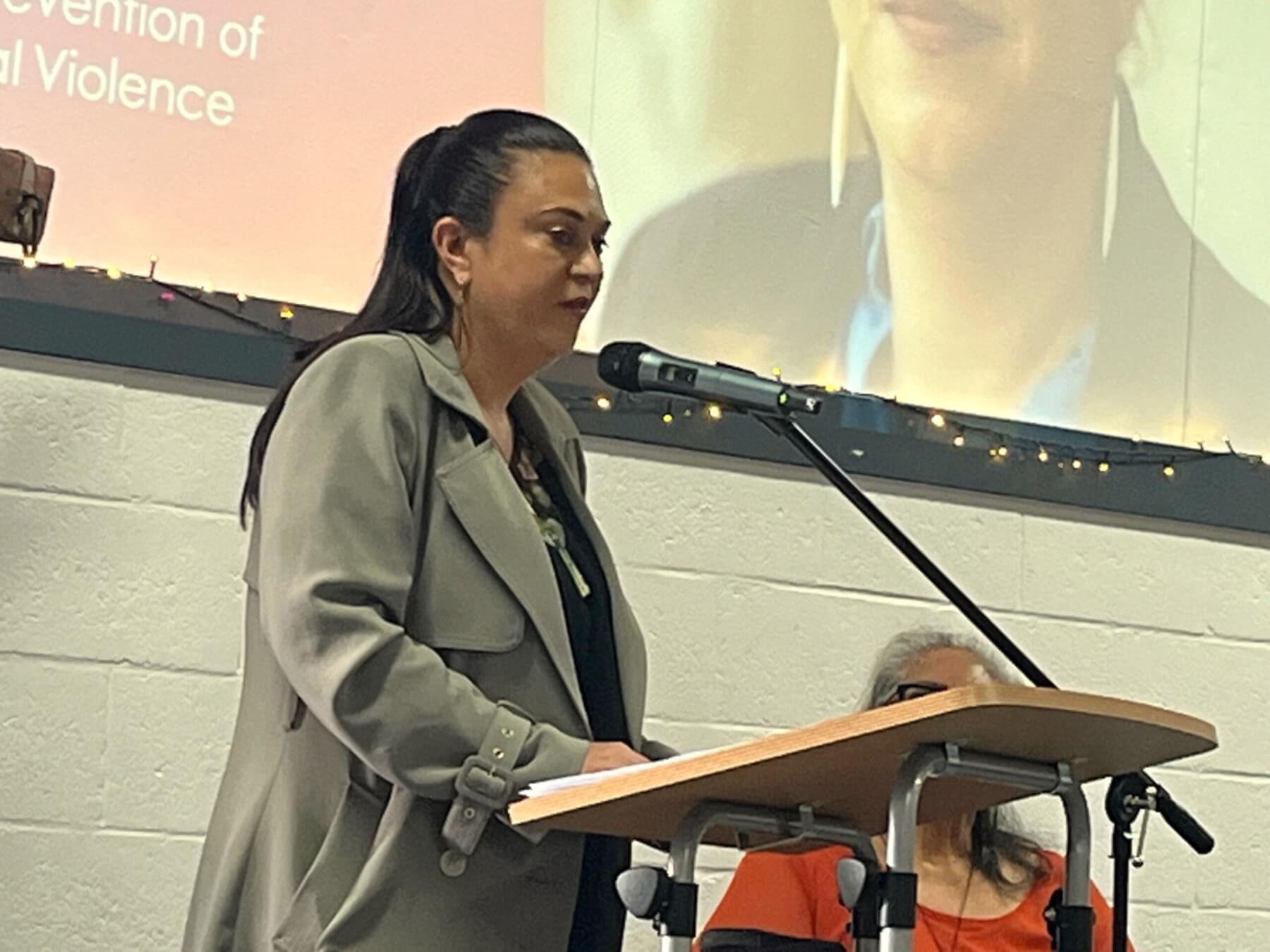
Minister for Children/ Prevention of Family and Sexual Violence Karen Chhour speaking to the audience. Photo: Viv Posselt
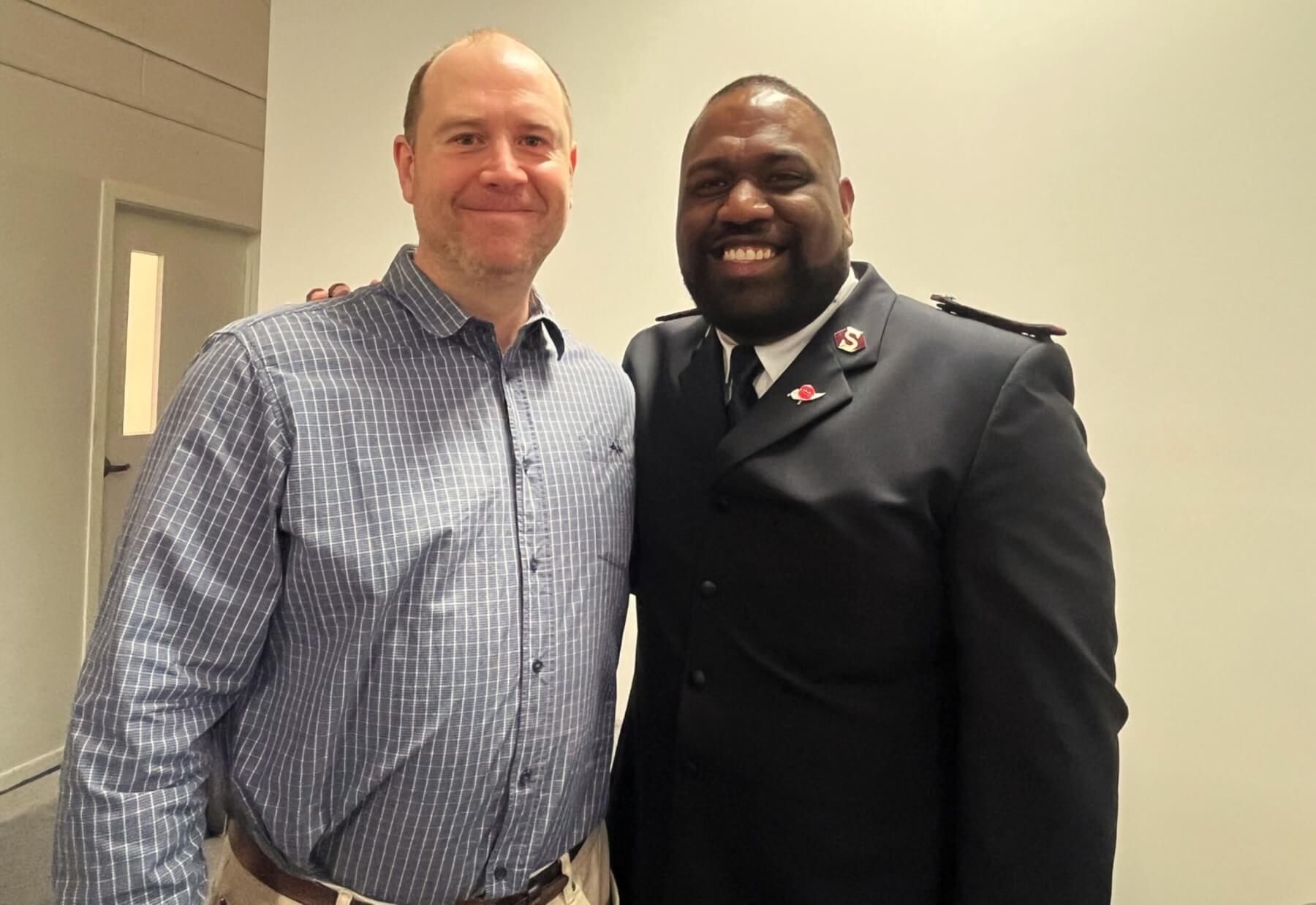
Cambridge Community House’s Francis Radloff with Cambridge Salvation Army’s Ben Cola. Photo: Viv Posselt
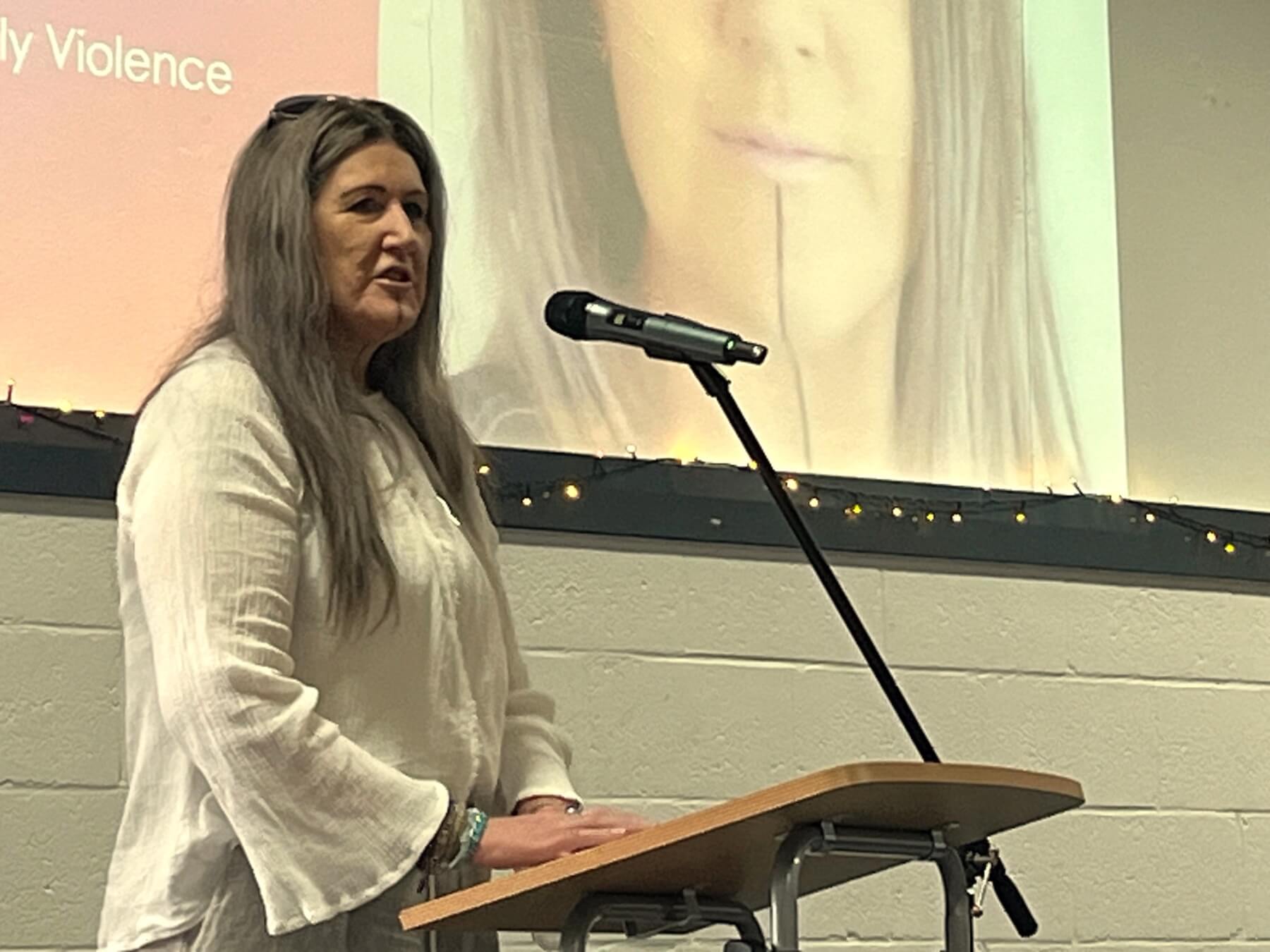
ECLIPSE Family Violence Services founder Debbs Murray played a large part in formulating the pilot programme. Photo: Viv Posselt
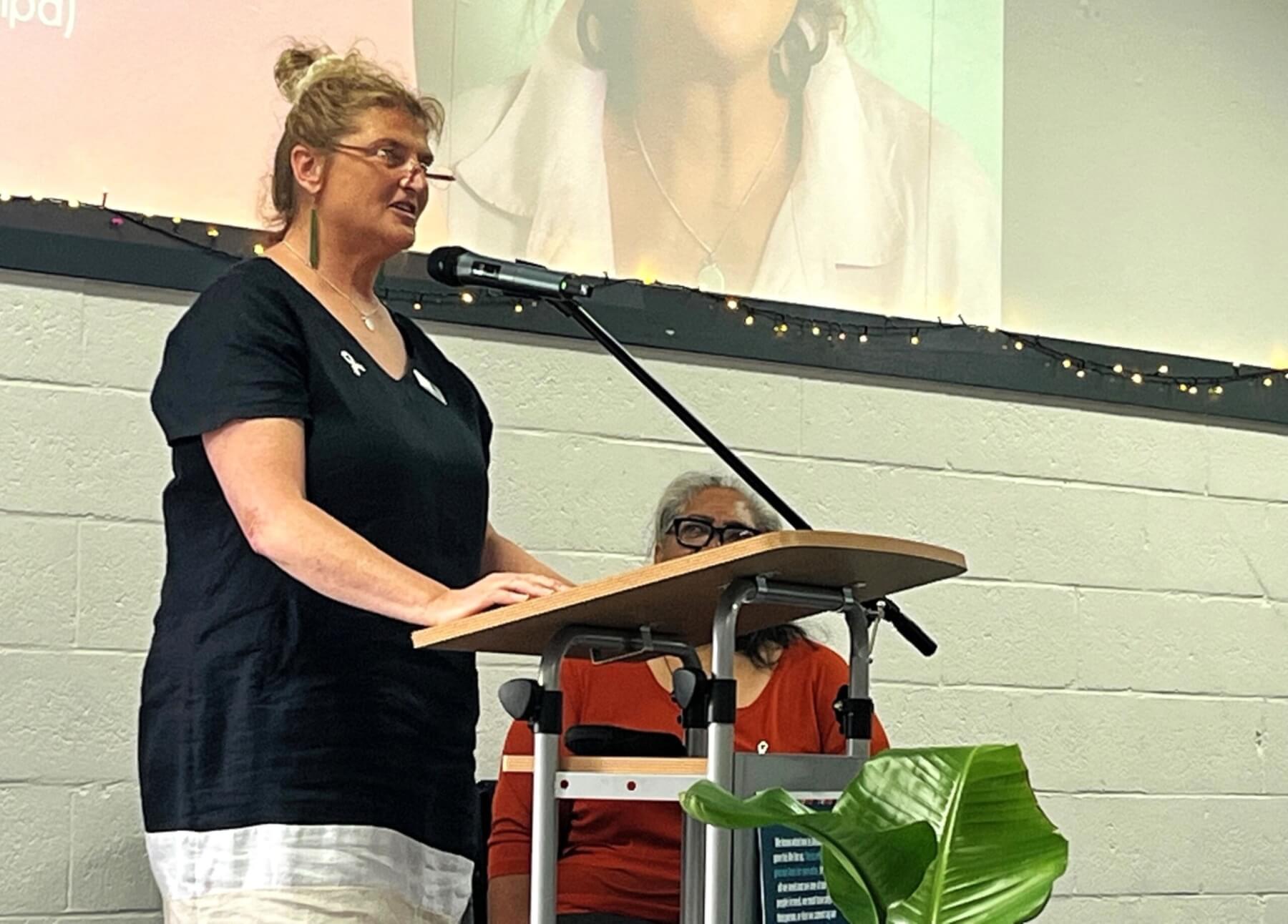
‘I Am Me’ programme founder and Violence Free Waipā co-ordinator Anne Morrison outlines its structure. Photo: Viv Posselt
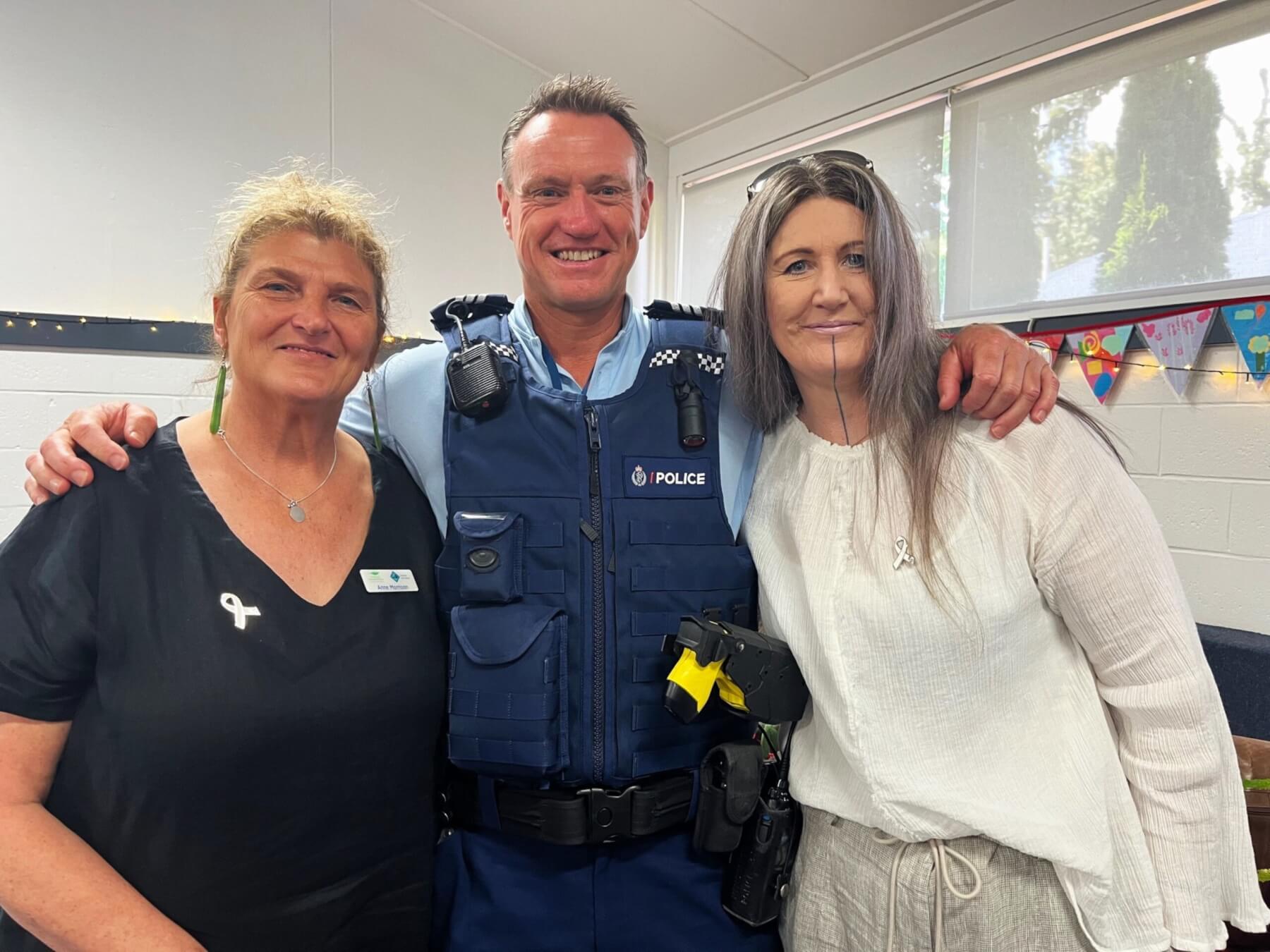
Programme founder Anne Morrison, left, with Waikato police sergeant Greg Foster and ECLIPSE Family Violence Services founder Debbs Murray. Photo: Viv Posselt



